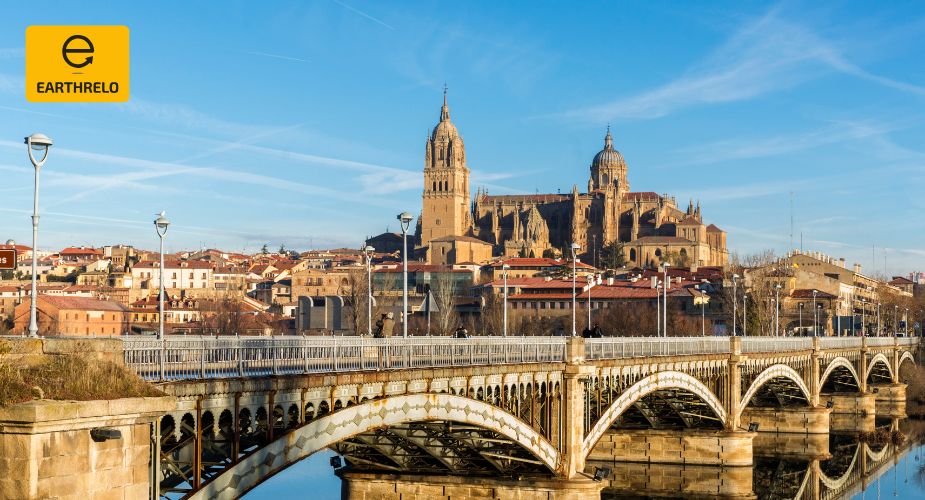- November 12, 2022
Moving to Spain is an exciting venture that can open up a new world of opportunities. Known for its sunny Mediterranean climate and lively culture, Spain has something to offer everyone who chooses to make it their home. From the bustling city of Barcelona to the rolling hills of Andalusia, there’s never a dull moment in this beautiful country. Whether you’re looking for a permanent move or want to spend some time experiencing the Spanish way of life, you can be sure it will be an unforgettable experience.
When deciding to Move To Spain, several important factors must be considered. From finding employment and housing to understanding your new home’s culture, language, and laws, each step must be taken with care. Here are some things you should research about:
Understanding the Immigration Process`
To move to Spain, it is necessary to obtain a visa or residence permit from the Spanish authorities. It can be a complex process and requires you to understand all the requirements and paperwork that must be completed before submitting your application. Depending on your nationality, certain documents like proof of income, proof of health insurance, and a police report may need to be submitted. Once all the necessary documents are in order, you can submit your application at the local Spanish consulate or online.
Once you have obtained your visa or residence permit, you will need to register with the Spanish government if you plan on staying for more than 90 days. This can be done by submitting a “Solicitud de Residencia” form at your local police station. During the registration process, you will need to provide proof of address, a valid passport or identity card, and proof of health insurance. Once registered, you can live and work legally in Spain.
Finding Accommodation in Spain
Regarding finding accommodation in Spain, multiple types of housing are available to suit every budget and lifestyle. Many opt to rent an apartment or house, which gives them greater flexibility in terms of location, amenities, and length of stay.
Apartments for rent in Spain can range from small studios to large houses with multiple bedrooms. Before you commit to a rental, it’s important to read all the terms and conditions of the contract carefully to ensure that there are no unexpected fees or clauses which could make your stay more expensive than anticipated.
If you’re looking for something more permanent, purchasing a property in Spain is also an option. This allows you to own an asset in a foreign country and benefit from any potential appreciation. If you’re looking to buy, it’s important to properly research the area you plan on purchasing in to avoid potential pitfalls.
Finally, suppose neither renting nor buying is an option for you. In that case, many hostels, guesthouses, and other short-term accommodation options are also available for those looking to Move To Spain for a short period.
Working and Studying in Spain
You’ll need to obtain the necessary permits or licenses to work or study in Spain. The permit application process will depend on the country you are coming from and the purpose of your stay. For those entering the country temporarily, such as to complete a course of study or a job contract, you will need to apply for the appropriate visa. In most cases, you’ll need to provide proof of income and/or sufficient funds for your stay in Spain. It’s important to research your options before beginning the process.
Places to explore in Spain
Spain is an incredibly beautiful and diverse country with interesting places to explore. Whether you’re planning to move to Spain for work or just for a visit, you won’t be disappointed with the many attractions on offer. From major cities like Madrid and Barcelona to stunning beaches by the Mediterranean Sea, there is something here for everyone. Here are some of the top places to explore when moving to Spain:
Madrid – Madrid is home to many of the country’s most famous attractions, including the Parque del Retiro, Prado Museum, and Royal Palace. It is also a great city in which to shop, eat out and enjoy the nightlife.
Barcelona – The Catalonia capital is an exciting city full of culture, art, and food. Must-see attractions include the Sagrada Familia, Park Guell, and La Rambla.
Valencia – Valencia is one of Spain’s most beautiful cities, with plenty of things to see and do. It is known for its stunning beaches, paella, and the iconic City of Arts and Sciences.
Seville – The capital of Andalusia is home to incredible monuments such as the Alcázar Palace, Torre del Oro, and Metro pol Parasol, making it an ideal destination for history buffs.
Granada – This city is home to the world-famous Alhambra Palace, which is one of Spain’s most visited attractions. Visitors can also explore a number of historic neighborhoods and enjoy traditional Andalusian cuisine.
Other places in Spain worth exploring include San Sebastian, Mallorca, Ibiza, and Tenerife. No matter where you choose to move to in Spain, you’re sure to find plenty of fascinating attractions and beautiful places to explore.
Learning the Language
Although English is widely spoken in Spain, learning Spanish will make it easier to navigate your new home. Understanding the language and culture of a new country can be intimidating and difficult, but with dedication and hard work, you can learn the basics of Spanish quickly.
There are many resources available for those who want to learn the language, such as classes at a local Spanish school or university, online courses, and private tutors. It is also important to immerse yourself in the culture of Spain by visiting landmarks, taking part in cultural events and activities, and interacting with locals to practice your Spanish. With patience and perseverance, you will soon be able to communicate in your new language.
Obtaining Healthcare Services in Spain
Obtaining healthcare services in Spain can be a daunting process due to the variety of options and restrictions that exist. The most common type of healthcare is provided by the Spanish Public Health System, also known as Sistema Nacional de Salud (SNS). This healthcare system is funded through taxes and social security contributions, making it available to all Spanish citizens and legal residents. However, coverage may vary depending on the region, health plan, and whether a person is employed or unemployed.
If you choose to move to Spain without signing up for public healthcare coverage, you will need to get private insurance. Private insurance companies can offer more comprehensive coverage than public plans, with fewer restrictions and more access to private healthcare providers. Additionally, private plans typically include coverage for emergency care.
No matter what type of healthcare plan you decide to use, it is important to do your research and understand the different options available in order to make an informed decision about how best to take care of your health when moving to Spain.
Setting Up Utilities
When you first move to Spain, it’s important to understand the process and fees that may be associated with setting up utilities such as water, electricity, gas, and internet service. One of the first steps is to do your research on what provider will offer the best prices for your area and the level of customer service you need.
Once you’ve chosen your provider, it’s important to understand the paperwork and process required to set up the service. You may need to provide proof of address, fill out an agreement form, or sign a contract before your utilities can be connected. It is also wise to check for any additional fees that may come with setting up the service.
You may also need to provide a deposit depending on your credit history, so it’s important to understand what amount is required before beginning the process. Finally, once everything is set up and ready to go, you’ll need to make sure that you can pay for your services in a timely manner.
Determining the Tax Rate
In order to determine your tax rate in Spain, you’ll need to understand both the national and local tax regulations. Additionally, it’s important to be aware of any deductions or credits that may apply to your situation.
It is important to understand the Spanish tax system before moving to Spain. The national tax rate of personal income tax in Spain is between 19 and 45%, depending on your filing status and income level. In addition, residents of certain autonomous regions may be subject to additional taxes that range from 0% to 3%.
When filing your taxes in Spain, you may be able to take advantage of deductions depending on your circumstances. This can include a deduction for donations made to charity, medical expenses, and other costs associated with paying rent or owning property in Spain.
Exploring and Dining Out in Spain
Building on the content above, exploring and dining out in Spain can be a truly enriching experience. From its cultural markets filled with unique goods to the incredible culinary delights of Spanish cuisine, there is no shortage of things to do.
When browsing markets and boutiques in Spain, visitors can expect to find an array of products ranging from souvenirs to handmade crafts and from clothing to furniture. With a wide range of items available, it’s easy to find something special to bring back home or even select an item that reflects Spanish culture.
Eating out in Spain is also one of the best ways to explore its delicious cuisine. Restaurants often offer a variety of traditional dishes while also mixing in some more modern options. Dishes such as paella, tapas, and gazpacho are all staples that deserve to be sampled when moving to Spain.
Additionally, for those looking for a unique experience when moving to Spain, there are many wine bars where one can sample some of the finest Spanish wines. For visitors who want to explore more of Spain’s culinary scene, they can take food tours or cooking classes to learn more about the country’s unique ingredients and recipes.
Conclusion
In conclusion, moving to Spain can be an exciting experience, but it is important to understand the various steps involved in setting up utilities and taxes. Additionally, exploring the country’s markets and dining out are great ways to get acquainted with the culture of Spain. With a bit of research and preparation, anyone who moves to Spain can have a successful and enjoyable experience.
At Earthrelo, we understand that the process of relocating can be overwhelming and stressful. That’s why our experienced team is dedicated to helping you through every step of the process. Our ultimate goal is to make your move to Spain as smooth and stress-free as possible. Contact us today to get started!





